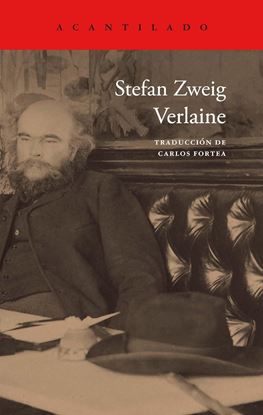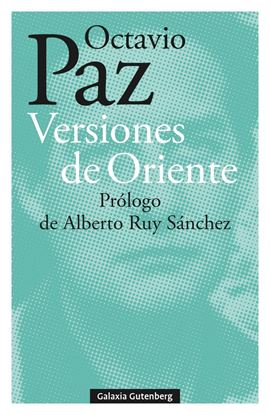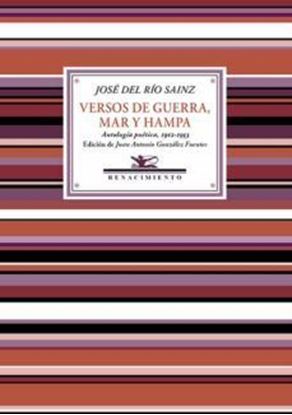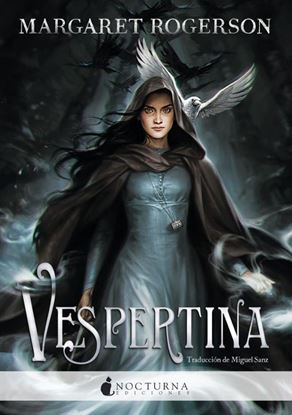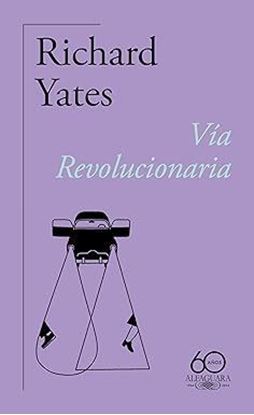

VERLAINE
Francia y la poesía fueron los primeros grandes amores de Stefan Zweig, que dedicó una buena parte de su obra a sacar de su «aparente oscuridad» a los genios de la creación y contagiar así sus pasiones a los lectores. A petición de la editorial berlinesa Schuster & Loeffler, el joven escritor compuso esta breve monografía sobre Paul Verlaine, su primer ensayo biográfico. Esta pequeña joya publicada en 1905, que incluye traducciones de algunos de los poemas más emblemáticos del poeta, inauguró en la carrera de Zweig un género literario en el que desplegaría todo su talento y sensibilidad.
800
640
VERSIONES DE ORIENTE
Nadie atrás, nadie adelante. Se ha cerrado el camino que abrieron los antiguos. Y el otro, ancho y fácil, de todos, no va a ninguna parte. Estoy solo y me abro paso.
750
600
VERSOS DE GUERRA, MAR Y HAMPA (OF2)
Jose del Río Sainz (Santander, 1884-Madrid, 1964) fue marino de formación y vocación, uno de los más importantes periodistas santanderinos de la primera mitad del siglo XX (corresponsal de guerra en Marruecos, director de periódico, articulista elogiado por Chaves Nogales), y un singular poeta caracterizado por su energía, prosaísmo y plasticidad. Autor de poemas que tienen casi siempre algo de suceso narrado que queda trascendido mediante una comprensión lírica de la realidad, Jose del Río es calificado por Gerardo Diego como un poeta cuya enorme personalidad se manifiesta en la conciliación de contrarios: modernismo y realismo, parnasianismo y prosaísmo. Premio Fastenírath de poesía en 1925, el propio poeta, en las líneas autobiográficas que en 1934 publicó en la segunda antología preparada por Gerardo Diego, señala que por edad y formación es seguidor de Ruben Darío y que la cualidad que prefiere en los versos es la musicalidad. En esas mismas líneas dejaba apuntado, con humor y lúcida ironía, "he recibido banquetes y homenajes, una puñalada y una flor natural, que es lo que más me duele". Concha Espina escribió sobre el: "es como sus versos: fuerte, descuidado, sincero, valiente".
500
400
VESPERTINA
Los muertos de Loraille no descansan. Artemisia se está preparando para unirse a las hermanas grises, encargadas de purificar a los fallecidos para que sus almas sigan adelante; de lo contrario, sus espíritus despiertan con un hambre voraz por los vivos. Ella prefiere tratar con los muertos, que a diferencia de los vivos nunca hacen comentarios sobre su turbio pasado. Cuando su convento sufre un ataque, Artemisia lo defiende despertando a un antiguo espíritu vinculado a una reliquia. Es un renacido, un ser malévolo que amenaza con poseerla en cuanto baje la guardia. La muerte ha llegado a Loraille, y solo una vespertina (una sacerdotisa entrenada para controlar una gran reliquia) puede aspirar a detenerla. Pero los conocimientos de las vespertinas hace mucho que se perdieron, por lo que a Artemisia no le queda más opción que recurrir al único que puede saber algo: el mismísimo renacido. Mientras su vínculo con el renacido se fortalece entre secretos y magia, un mal oculto comienza a surgir. Y enfrentarse a él puede requerir que traicione todo en lo que cree... si es que el renacido no la traiciona primero.
1,450
1,160
VIA REVOLUCIONARIA (60.ANIV.ALFA)
Los años 50 retratados por Richard Yates tienen demasiados parentescos con los tiempos que vivimos. El aislamiento que nace de la comodidad. La incomunicación que produce la falta de sentimientos sinceros. La pérdida, muchas veces inconsciente, de valores, que en algún momento parecían fundamentales.
Brillantes, bellos y confundidos, Frank y April Wheeler tratan de sostener sus ideas incluso contra sí mismos y sus debilidades. Yates los examina con una lucidez que tiene mucho de tristeza en esta magnífica novela: una indagación profunda y conmovedora sobre lo que las personas dejan que la sociedad haga con ellas.
995
796


